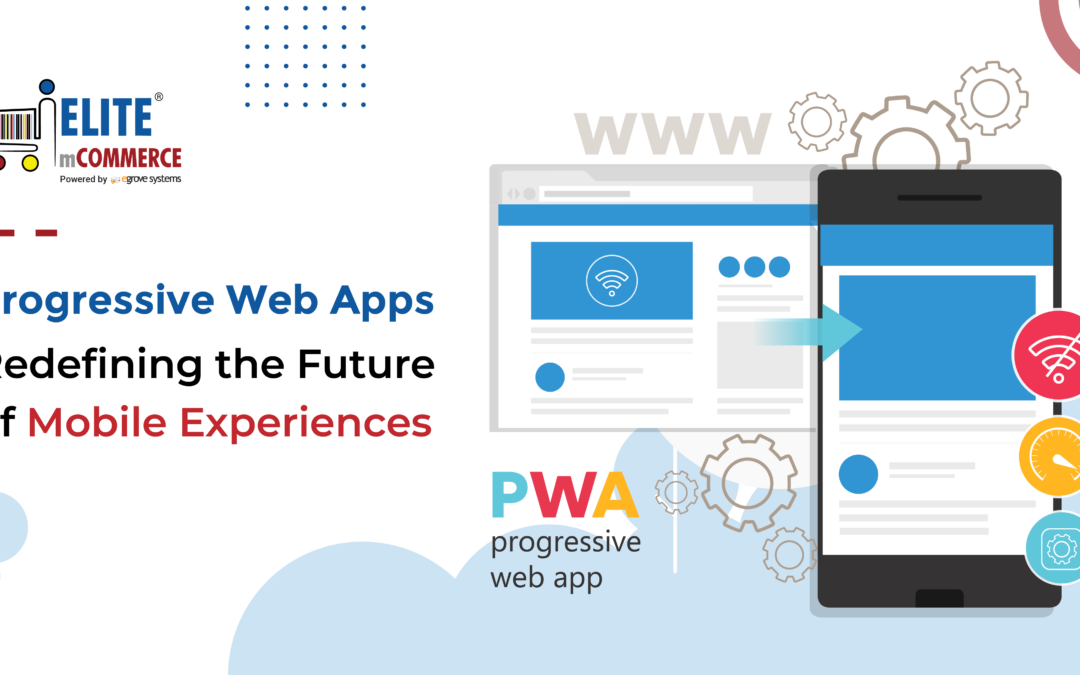Progressive Web Apps, also known as PWAs, have become an integral aspect of modern web development today. These apps are built with web platform technologies and aim to provide an enhanced user experience similar to a platform-specific app.
These progressive web applications are slowly transforming the future landscape of mobile experiences for users. These applications act as a solution to bridge the gap between the user experiences on mobile applications and websites.
You can read this article to learn more about progressive web apps redefining the future of mobile experiences.
An Overview of Progressive Web Apps
A Progressive Web App, or PWA, is a web application built using web technologies such as HTML, CSS, Javascript, and Web Assembly. These PWAs, created with web platform technologies, offer the feel and functionality of native mobile apps. Although they are created with web technologies, they provide the experience of a platform-specific app.
Businesses across the world are utilizing Progressive Web Apps to create and establish their digital presence. PWAs are becoming increasingly popular for their exceptional performance and ability to increase user engagement and enhance user experience. They are considered one of the best and most effective ways to connect with the audience for better reach.
Progressive Web Apps offer the best of both worlds — in terms of user experiences in mobile apps and websites. These PWAs are similar to regular websites but have a comprehensive list of features and benefits for users, along with better functionality.
The Benefits of Progressive Web Apps
Numerous benefits of Progressive Web Apps make it an increasingly popular choice in the world of web development.
Some of the benefits of Progressive Web Apps are as follows —
Improved User Experience
One of the biggest benefits Progressive Web Apps offers is an engaging and improved user experience. A smooth and seamless experience is a necessity for the success of websites and applications among users.
The loading times of the PWAs are lightning fast, with quick speeds for increased user engagement and usage and less delay. Applications that take too long to load and interfaces that are slow to respond can reduce user engagement significantly. In this aspect, PWAs perform better than standard web apps and cater to the short attention spans of users.
Push notifications deliver timely updates to users and are an effective feature for better engagement and retention rates. Push notifications work well on both mobile phones and desktops and are considered a powerful tool.
Work Offline
Progressive Web Applications can work offline, unlike the usual web applications. PWAs are network-independent and work well even when users don’t have a reliable network connection or are offline.
It is an extremely useful feature and helpful for users to access content when they are in areas with limited connectivity and network issues. This is possible because service workers are required to have basic offline experience, and APIs are used to revisit page requests and responses to access content without an Internet connection.
Easily Installable
PWAs are easily installable on a device, unlike traditional web apps. Progressive Web Applications have an app icon that appears on the home screen of the user’s device. It allows for instant access with the app shortcut.
The app icons of PWAs make it easier for users to enjoy a seamless user experience without the hassle of using the web browser and typing the URL to access the content and web application.
Highly Responsive
The Progressive Web Apps are highly responsive. They run efficiently on different screens. The responsiveness of PWAs contributes to a seamless and user-friendly experience and adds to its functionality in today’s times.
These applications are well-known for their high level of responsiveness and adaptability to different screen sizes and orientations of the devices users access them from. It provides a seamless and consistent experience for users across various devices—smartphones, laptops, tablets, and more.
Improved Performance
PWAs offer improved levels of performance when compared to traditional web apps. They outperform native apps in many ways, and this makes PWAs sought after by users.
The design of PWAs makes them lightweight based on the amount of data consumption. They offer a high level of responsiveness, quick load times, and seamless and smooth user experiences. The web apps are also flexible and adapt to any device size and orientation.
Search Engine Optimized
PWAs are search engine optimized and easily discoverable to people. These web apps are compatible and can be easily ranked and cataloged in search engines.
It leads to improved SEO rankings due to the fast load time and efficiency of the web applications. Page speed is a factor that boosts the ranking of a website on search engines.
Built with Common Web Technologies
Progressive Web Apps are built with common web technologies such as HTML, Javascript, and CSS. One of the benefits of using these web technologies is that they become much more accessible for a diverse range of developers.
This makes it easier to maintain and update the website application. The shared codebase allows the updates to show up in real-time, and users don’t need to update the web app manually by themselves.
Cost-Effective
The PWAs make use of a single codebase for different platforms, as they are developed with web technologies such as HTML, Javascript, and CSS. It becomes easy to develop, maintain, and update the PWAs with a shared codebase, which makes them a perfect solution for small businesses with limited resources.
This makes the process of developing and maintaining a single PWA cost-effective and quite simple. It also doesn’t require the development of separate apps to work on different platforms, saving time and money.
Conclusion
Progressive Web Apps are becoming increasingly popular today. These PWAs offer numerous benefits and provide users with a seamless and engaging digital experience with improved functionality.
These PWAs are an important technology in redefining the future of mobile experiences for users and are a sign of a crucial transformation in the way digital content can be consumed.







